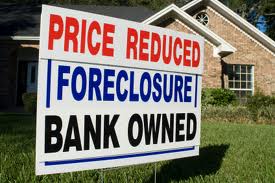 I procrastinated for several years before finally buying an investment property; now I have 13 rental houses. In the last month I have begun moving into flipping, and documenting the steps and results on my blog. I now have two houses under contract that I intend to flip, and I am learning a lot as I go. However, I do know how to buy bank-owned properties, and rent them out for a profit. There is no need to procrastinate – just get out there and do it. This article will explain how to get started by buying bank-owned properties and renting them out.
I procrastinated for several years before finally buying an investment property; now I have 13 rental houses. In the last month I have begun moving into flipping, and documenting the steps and results on my blog. I now have two houses under contract that I intend to flip, and I am learning a lot as I go. However, I do know how to buy bank-owned properties, and rent them out for a profit. There is no need to procrastinate – just get out there and do it. This article will explain how to get started by buying bank-owned properties and renting them out.
Why Rentals?
Rentals may not be the best way to go, but they do provide a safety net. If this is your first investment house you should be able to get a 30-year fixed mortgage at a low rate. This should help ensure that you will have positive cash flow, even if you end up spending more than you should have. Do not rely on this crutch, but it is a good safety net.
10 Steps to Getting into Real Estate Investment
- Determine your rent range. In my area, rentals around $800 seem to rent faster. Over $1,000, the pool of tenants is too small; below $600, the house is usually in a terrible area. You want to spend no more than 60 times rent, so about $48,000 will be the max you will spend to purchase and rehab (numbers in your area may vary).
- Get pre-approved for a conventional 30-year fixed mortgage. After doing the rehab with a commercial construction loan, you will refinance to this long-term loan. This will make the construction loan lender more likely to loan to you. Get approved for a little more than the maximum value you calculated in step 1.
- Find several houses. I use a site called Equator that has real bank-owned properties listed. You can also find good deals at the HUD HomeStore. Find houses priced less than 145% of your upper limit. If your upper limit is $50k, stick to houses at $70k and under.
- Make offers on several houses; I usually try about six at a time. Offer low, about half of the listing price. The contract will say that your earnest money is available when a deal is reached. Most offers will be ignored. Sometimes you feel silly making these low offers (good). I work with a single agent that understands my approach and does not mind these offers. Some agents will hate it; just find the right one.
- When you get a counteroffer, you know the seller is ready to deal. Only then do you need to go see the house and make a rough repair estimate. Just count the big things like roof, AC, carpet, and paint, then add some cushion for unknowns. Use this repair estimate to calculate the maximum you will spend on the house and do not go over it.
- Counter their counter. In most cases, their counteroffer is only a small discount, so only move up a little – maybe $2k. If you found the repairs are too high you can just drop the deal here since they countered (they always counter with these offers).
- When negotiating, you want to respond to their counters fast – in a few hours. They will be slow and take days to respond. Move up a little at a time and do not go over your limit. Don't be afraid to have several deals in negotiation at the same time. Getting too many deals is a good problem. Keep the value of the house in mind, but this is mainly a cash-flow deal. You want to spend less than 80% of the value, and 60 times rent is usually cheap enough. Do not pay too much for the house.
- When you reach a deal, make a detailed repair estimate then add some cushion to the numbers.
- Start approaching local lenders. Explain your plan and show the pre-approval letter from step 2. Let them know that after the rehab you will refinance the house and their exposure is over.
- Close the deal and do the rehab. Then stick a for-rent sign out and wait for a tenant. If you price the rent properly, you should have it rented in a few weeks.
It is a little more complicated than this. Doing the rehab and finding the tenant takes some experience, but that is beyond the topic of this article. The main point is to start moving forward – then momentum will complete the deal.
Once you have done your first deal, the rest get easier.
 Don Chambers is a successful real estate investor in Warner Robins, GA. Follow along with his blog [ http://realestateadventurer.com ] to learn how to invest in real estate. If you want to invest in real estate in the middle Georgia area, you can join his wholesale buyers list.
Don Chambers is a successful real estate investor in Warner Robins, GA. Follow along with his blog [ http://realestateadventurer.com ] to learn how to invest in real estate. If you want to invest in real estate in the middle Georgia area, you can join his wholesale buyers list.



